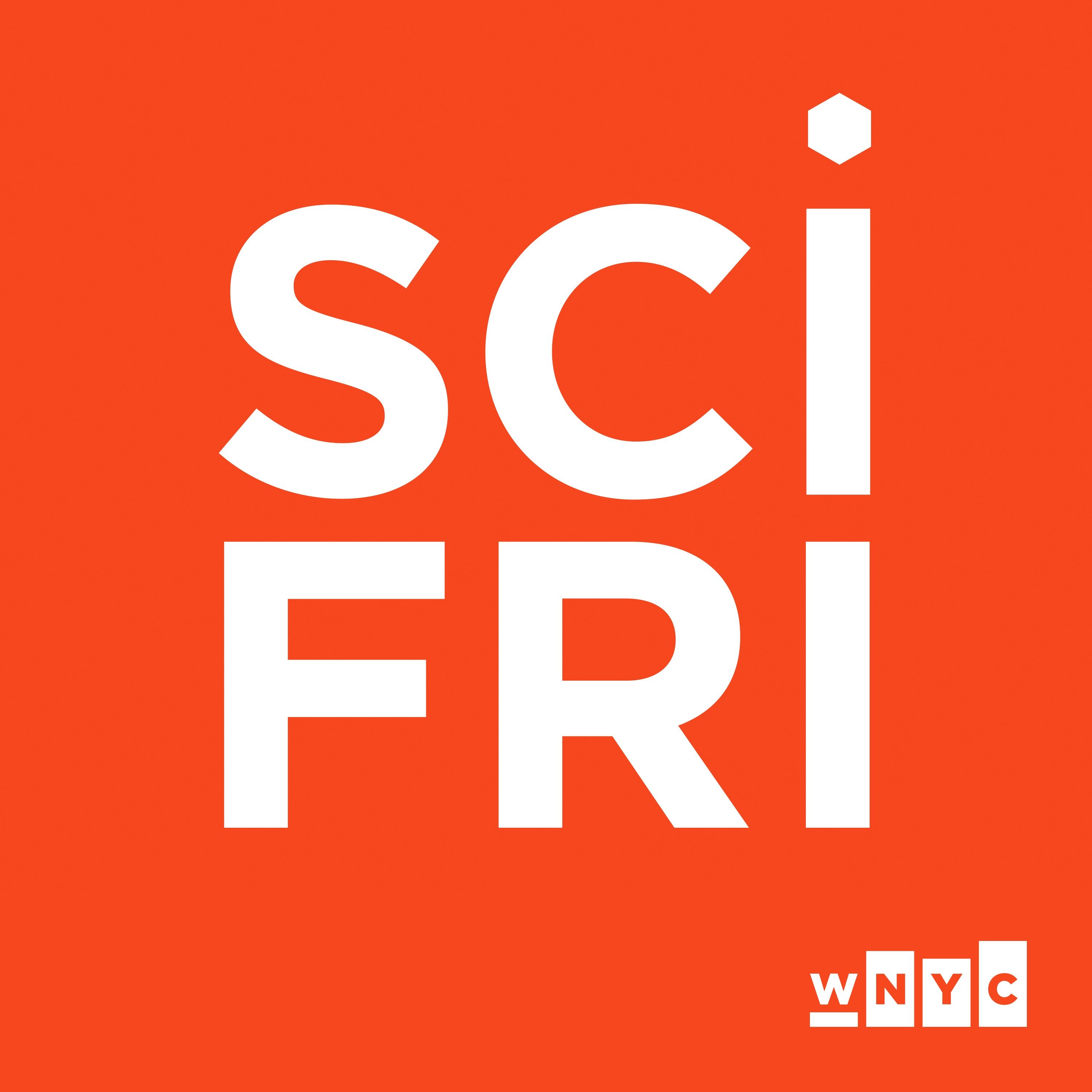

Science Friday
Science Friday and WNYC Studios
Covering the outer reaches of space to the tiniest microbes in our bodies, Science Friday is the source for entertaining and educational stories about science, technology, and other cool stuff.
Episodes
Mentioned books

16 snips
Jul 17, 2025 • 13min
Is This PTSD Treatment Too Good To Be True?
Yasmin Tayag, a staff writer at The Atlantic, dives into the groundbreaking but contentious approach to PTSD called Reconsolidation of Traumatic Memories. She discusses the painful challenges veterans face with traditional therapies and shares a compelling story of a veteran's dramatic transformation through this innovative technique. Tayag also explores the scientific basis and skepticism surrounding the treatment while emphasizing the urgent need for effective solutions in the mental health arena.

54 snips
Jul 16, 2025 • 29min
Is It Time For A New Model Of The Universe?
Wendy Freedman, a professor of astronomy at the University of Chicago and former leader of the Hubble Key Project, joins Dan Scolnic, a cosmologist from Duke University focused on dark energy. They delve into the controversial Hubble constant, discussing how recent findings suggest the universe might be expanding faster than current models predict. Topics include dark matter mysteries, advancements in astronomical instruments, and the implications of potential new theories that could reshape our understanding of the cosmos.

Jul 15, 2025 • 13min
How PFAS From A Military Base Has Sickened Nearby Residents
Shantal Riley, an award-winning journalist with a focus on environmental health, joins the discussion on PFAS contamination in Newburgh, New York. She uncovers how toxic 'forever chemicals' from firefighting foam have infiltrated the water supply, affecting the health of local residents. The alarming links to high cholesterol, blood pressure, and heart disease are examined, alongside the community's struggle for awareness and action. With a CDC study underway, the urgency for stricter regulations and advocacy gains prominence in this ongoing environmental crisis.

Jul 14, 2025 • 28min
The Leap: And Then The Sub Went Silent
Victoria Orphan, a Caltech professor and deep-sea explorer, shares her harrowing experience in the Alvin submersible during an intense dive. She recounts the critical malfunction that cut off communication, prompting panic among her team above the surface. With moments of suspense and triumph, they navigate unexpected challenges while aiming to collect elusive tube worms. Victoria's story captures the blend of risk and curiosity inherent in deep-sea exploration, showcasing the emotional highs and lows of scientific discovery.

5 snips
Jul 13, 2025 • 8min
How These Spiders At The Bottom Of The Sea Run On Methane
Biologist Shana Goffredi, a professor at Occidental College, dives into the intriguing world of deep-sea spiders adapted to thrive on methane. She reveals the discovery of a unique sea spider with unusual features, such as a giant nose and leg cannons. The podcast explores their symbiotic relationship with methane-oxidizing bacteria and the spiders' grooming habits. Goffredi emphasizes the importance of deep-sea biodiversity and highlights that much of the ocean remains unexplored, promising more surprises in these mysterious depths.

5 snips
Jul 11, 2025 • 19min
As Disasters Escalate, What’s The Future Of FEMA?
In this discussion, Samantha Montano, an associate professor at the Massachusetts Maritime Academy and author of *Disasterology*, dives into the future of FEMA amid proposals for its reduction. She explores the evolving challenges of disaster management in the U.S., highlighting staffing shortages and funding issues. The conversation also reveals how climate change is intensifying flooding and altering weather patterns, stressing the urgent need for reform in emergency response and better warning systems to address these extreme events.

30 snips
Jul 10, 2025 • 18min
Spaghetti Science And Mouth Taping Myths
Joseph Howlett, a math writer at Quanta Magazine, dives into the physics of spaghetti, revealing why it breaks into multiple pieces and the science behind perfecting cacio e pepe. Linda Lee, a physician and surgeon at Massachusetts Eye and Ear, discusses the trending mouth taping practice, exploring its purported benefits like improved sleep and breathing. She emphasizes the need for professional evaluation before jumping on wellness trends and critiques the influence of social media on health practices.

8 snips
Jul 9, 2025 • 18min
The Goo In Your Home Could Help Science Address Climate Change
James Henriksen, an environmental microbiologist studying extremophiles, and Lisa Stein, a climate change microbiologist engineering microbes, dive into the hidden world of microorganisms in our appliances. They reveal how these resilient microbes could transform methane and CO2 into climate solutions. The conversation uncovers the significance of microbial diversity in the global carbon cycle and the innovation behind cultivating extremophiles to tackle environmental issues. Together, they showcase the potential for microbes to inspire sustainable agricultural practices.

35 snips
Jul 8, 2025 • 19min
How Do GLP-1 Drugs Override Our Biology?
David Kessler, former FDA commissioner and author of "Diet, Drugs and Dopamine," shares insights into GLP-1 drugs like Ozempic. He discusses their surprising mechanisms in weight loss, how they influence appetite control by interacting with the brain, and the implications of obesity and processed foods. Kessler also highlights the complexities of maintaining weight and calls for a holistic approach to health that goes beyond pharmaceuticals, addressing food labeling and societal challenges surrounding eating behaviors.

9 snips
Jul 7, 2025 • 26min
The Leap: Everything Else Is Boring
Karmella Haynes, a pioneering researcher in synthetic biology and epigenetics, shares her unique journey in engineering molecular machines to combat cancer cell growth. She discusses her creative approach to presenting research and the significant early results in enhancing tumor suppressor gene functions. Karmella, along with her colleague David Katz, addresses the interdisciplinary challenges and biases in science, particularly for women and minorities. Personal anecdotes reveal how her upbringing shaped her bold pursuit of innovation in a traditionally unwelcoming field.


